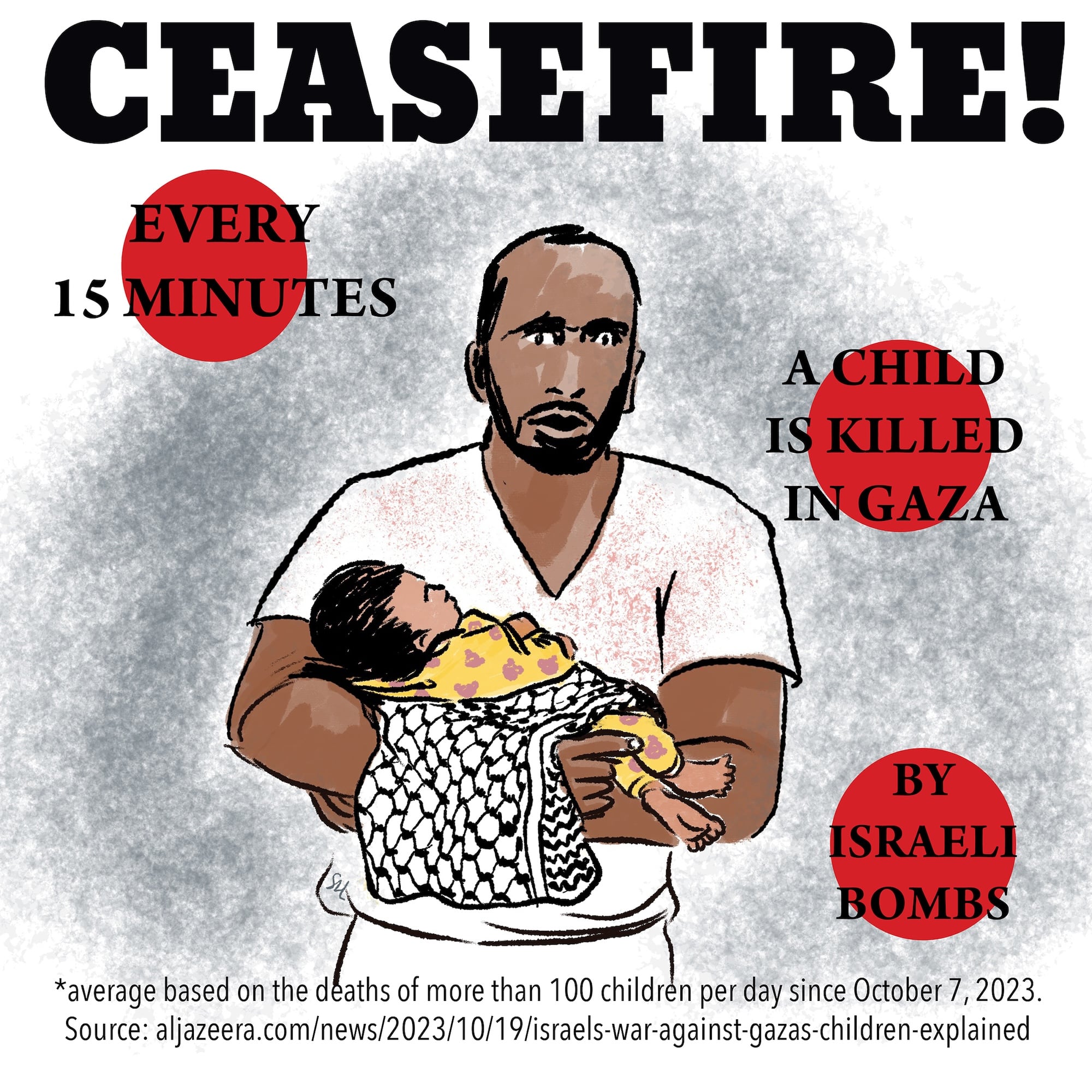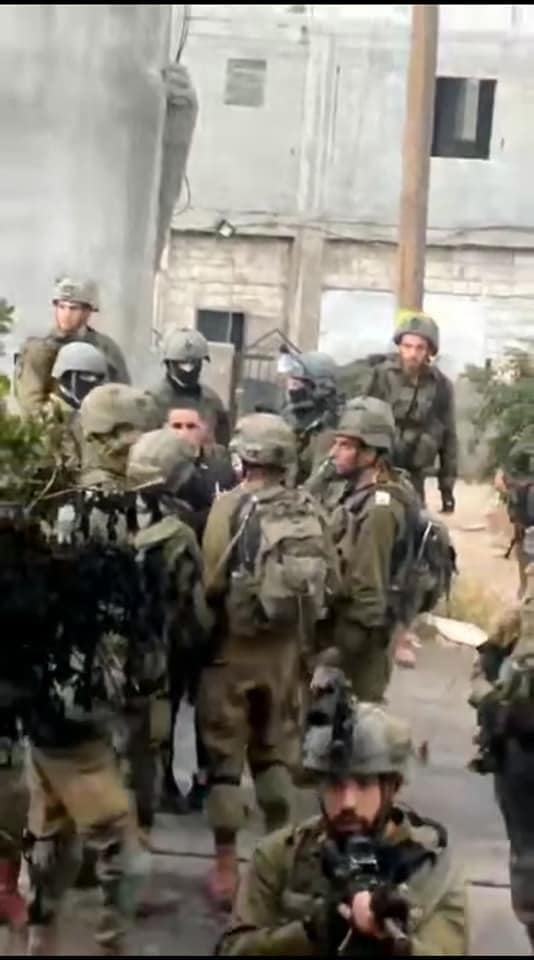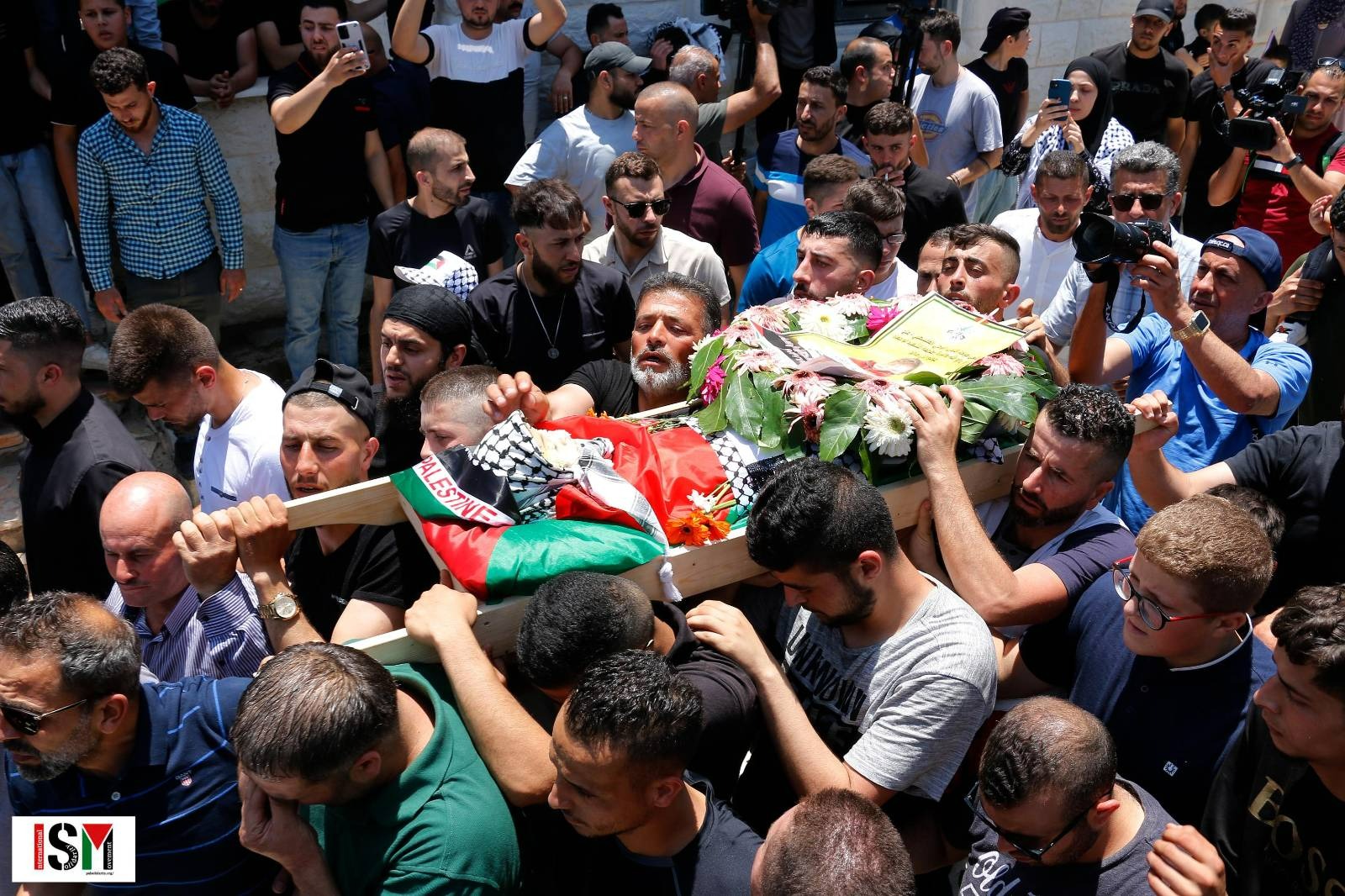Tag: Children
-
Suffer the Children
I am still perpetually on the verge of crying or crying most of the time. Throughout my travels in Palestine, I have learned from the wisdom of children.
-
Israeli Occupation forces Shoot Children in the Head and Then Arrests Them in Nabi Salah
6/9/2023 Nabi Salah, Occupied Palestine, In the Aftermath of the Killing of infant Mohammad Tamimi the occupying forces invaded the sleeping village of Nabi Saleh again early Friday morning and aressted Wissam Tamimi, who had just turned seventeen, and twenty-two-year-old Mohammed Fadel Tamimi, from their homes. Both suffer from severe head injuries. The Israeli military…
-
The Occupation forces that shot infant Mohammad Tamimi in the head invade and injure mourners at his funeral.
6/6/2023, Nabi Saleh, Occupied Palestine Today, the people of the village of Nabi Saleh bid farewell to the slain infant Muhammad Tamimi, who tragically died after being shot in the head by an Israeli soldier. The villagers of Nabi Saleh welcomed the child with flowers as they paid their respects. His mother, brother, sister, and…



